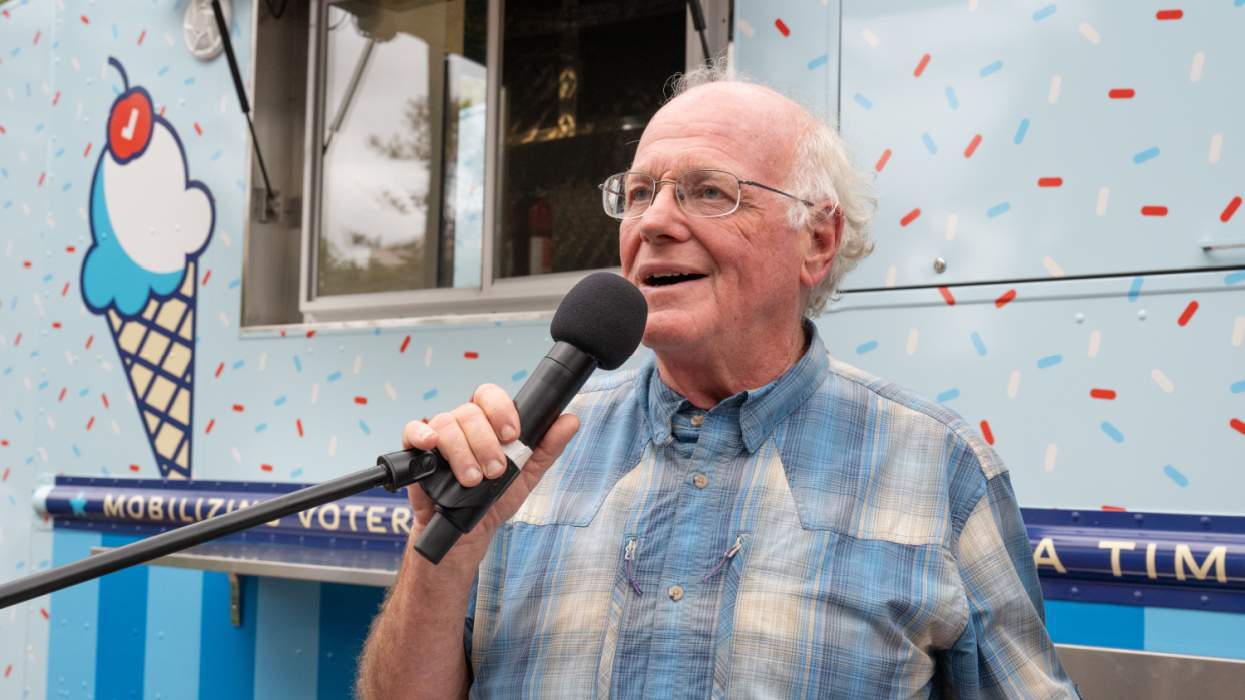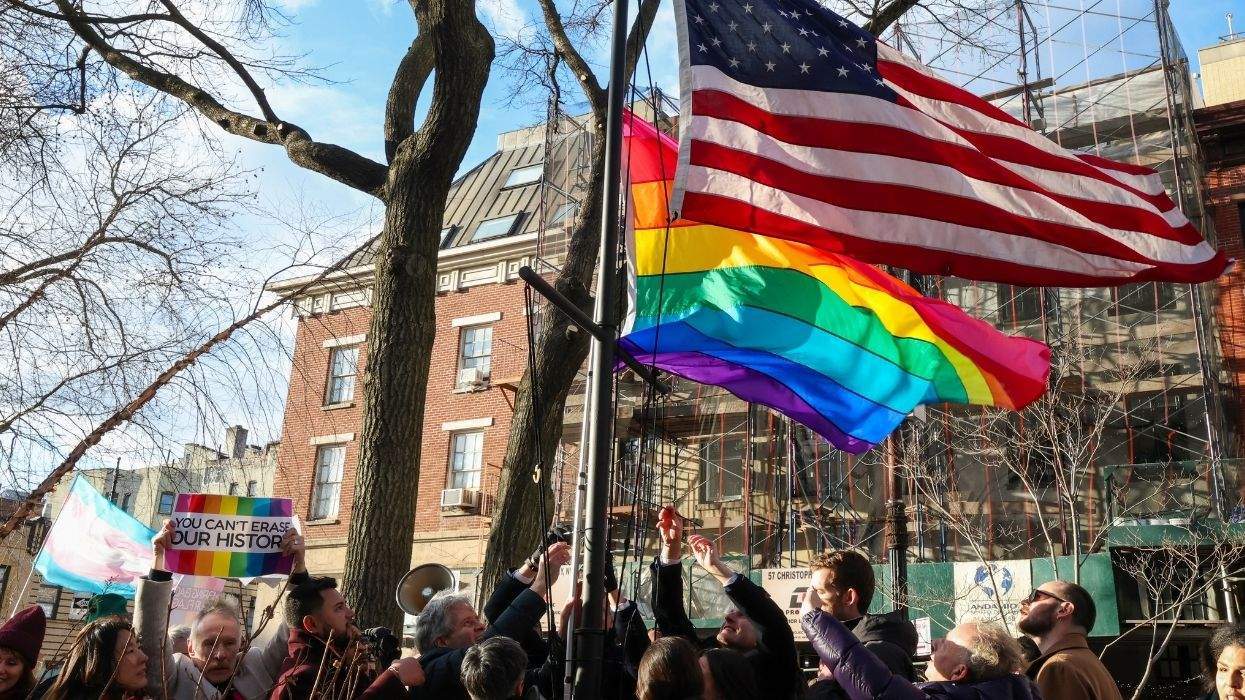Preventing the U.S. Senate from confirming Brett Kavanaugh to the Supreme Court will be a challenge, but "nevertheless, we will persist," Sen. Elizabeth Warren said Wednesday.
The Massachusetts Democrat made the remark on a conference call between civil rights activists and reporters, in a reference to Majority Leader Mitch McConnell's use of "Nevertheless, she persisted" when he tried to silence her objections to Jeff Sessions during the confirmation hearings on his nomination for attorney general.
Warren, who with her supporters has now adopted the saying as a battle cry, objects equally to Kavanaugh, possibly even more so. "Democracy as we know it is what's at stake in this fight, and over the next few weeks and few months, we will have to join together and raise our voices like never before," she said.
Kavanaugh, nominated last month by Donald Trump to replace retiring Justice Anthony Kennedy, has shown a marked tendency to favor corporate interests and religious conservatives in his opinions as a federal judge, noted Warren and the call's other participants.
"The pro-corporate judges who are now filling up our courts are more anti-LGBTQ, more antiwomen, more antiworker, more anti-civil rights, and more anti-environmental justice than any group of judges we have seen in living memory," Warren said.
What's more, Kavanaugh is nominated to replace the Supreme Court's swing justice. The court's makeup in recent years has been four reliably liberal justices, four reliably conservative ones, and Kennedy, whose vote usually couldn't be predicted -- but who did vote in favor of LGBT rights in several cases and authored the majority opinion in these rulings. He wrote the opinions striking down antisodomy laws, the Defense of Marriage Act, and all remaining state bans on same-sex marriage.
Liberal activists are certain the situation will change with Kavanaugh. "We already saw in Priests for Life that he put the religious beliefs of employers over the rights of their workers," Democratic Sen. Jeff Merkley of Oregon said during the call. "That case was about access to birth control. But it's the very same argument we've seen used for a license to discriminate against LGBTQ Americans time and time again." Chad Griffin, president of the Human Rights Campaign, concurred that in this case, Kavanaugh used "the exact same argument religious extremists use about a license to discriminate against LGBTQ people."
In Priests for Life, Kavanaugh, as a judge on the U.S. Court of Appeals for the D.C. Circuit, dissented from the court majority's decision not to rehear the group's challenge to the Affordable Care Act's mandate for employers' health insurance plans to cover contraceptives for their employees.
President Barack Obama's administration offered a way for faith-based employers to distance themselves from the coverage by having insurance companies, not employers, pick up the cost, with the employer submitting a simple form to make this arrangement. But Priests for Life, a Catholic group, thought this made the organization still "complicit" in providing contraceptives, and Kavanaugh agreed, saying the administration should have found a less restrictive means of accommodating religious objections.
Many LGBT issues are likely to come before the Supreme Court in the next few years, conference participants said. These include a "license to discriminate" based on religious objections, the question of whether existing civil rights law bans anti-LGBT discrimination, the right of transgender people to serve in the military, the right of LGBT to be adoptive or foster parents, and the continued existence of the ACA, with its provisions banning anti-LGBT discrimination and assuring that preexisting conditions are covered by insurance.
Kavanaugh's nomination is reason for alarm because he "would tilt an already conservative court to the far right," said Shannon Minter, legal director for the National Center for Lesbian Rights
Challenges to Trump's transgender military ban, which is blocked from taking effect while these suits are heard in federal courts, will eventually get to the Supreme Court, said Rachel B. Tiven, CEO of Lambda Legal, which has brought some of the litigation against the ban. If Kavanaugh is on the court then, "he probably will say that the president can do whatever he wants," Tiven said.
During the years Kavanaugh worked in the White House under George W. Bush, he took an expansive view of presidential power. Also, during the time he worked there, Bush endorsed a constitutional amendment to ban same-sex marriage and took other anti-LGBT actions, noted Vanita Gupta, president and CEO of the Leadership Conference on Civil and Human Rights, which hosted Wednesday's call. Senate Democrats have called for the release of all documents relating to Kavanaugh's tenure there, but Republican Charles Grassley, chairman of the Senate Judiciary Committee, has agreed that only a portion of them need to be released.
"With civil and human rights at stake, the Senate must demand the release and review of Kavanaugh's full record," Gupta said. "The American people deserve to know Kavanaugh's involvement in the Bush administration's anti-LGBTQ agenda."
And there's the matter of the ACA. "Before the ACA, merely being transgender was considering a preexisting condition and cause for an insurer to turn you down for coverage," said Mara Keisling, executive director of the National Center for Transgender Equality. "Transgender people will never go back to being a preexisting condition. We're demanding the Senate refuse to confirm Judge Kavanaugh because no American should have to live in fear of having their coverage denied when they need it most."
Warren pointed out that it was just a little over a year ago that the Senate voted against repealing the ACA, which would have taken health insurance away from tens of millions of Americans. The House had already approved the repeal. But three Republican senators -- Susan Collins, Lisa Murkowski, and John McCain -- joined with Democrats to vote against repeal, saving the ACA.
Now, with the Democrats having flipped a Senate seat with Doug Jones's victory over Roy Moore in last year's special election, and McCain, who is seriously ill, not expected to be present for a vote on Kavanaugh, the Democrats have to convince only one Republican to join them to defeat his nomination 50-49.
The senators who voted to preserve the ACA were swayed by public outcry, and that is what is needed with Kavanaugh, Warren said. "By raising our voices together, we saved health care for tens of millions of Americans. ... If we get one vote to join the Democrats, we can push back on the Kavanaugh nomination," she said.
Of course, that's assuming that all the Democratic senators will oppose him. Kavanaugh's supporters have been working on some conservative-leaning Democrats, such as West Virginia's Joe Manchin.
"We're taking no votes for granted," said Kristine Lucius, executive vice president for policy and governmental affairs st the Leadership Conference. Constituents and activists are speaking out in a broad range of states, including some whose Democratic senators supported Trump's earlier (and confirmed) Supreme Court nominee, Neil Gorsuch, she said.
Tiven added that there is often power in one senator. When Tim Scott of South Carolina, the only African-American Republican U.S. senator, announced he could not support Ninth Circuit Appeals Court nominee Ryan Bounds because of Bounds's racially incendiary writings, the nomination was withdrawn, she pointed out.
The question of whether Trump would nominate someone just as bad as Kavanaugh if he is rejected didn't come up in the call. But liberal activists have previously noted that when an extreme Supreme Court nominee is defeated, a president tends to put forth a more moderate one -- as in the case of Ronald Reagan's nomination of Kennedy after Robert Bork failed to win confirmation (and Douglas Ginsburg withdrew) in the 1980s.
The effort to defeat Kavanaugh "is an uphill climb," Warren added. "This is a tough climb. Big corporations, lobbyists, spineless Republicans, will do everything they can to stop us. But nevertheless, we will persist."















Charlie Kirk DID say stoning gay people was the 'perfect law' — and these other heinous quotes
These are some of his worst comments about LGBTQ+ people made by Charlie Kirk.